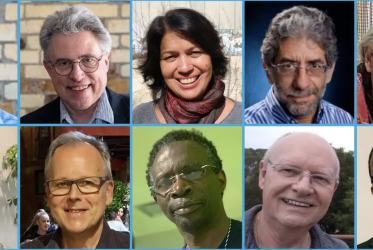Mostrando 1 - 20 de 1475
WCC extends prayers for lasting peace in Haiti
11 Abril 2024
WCC expresses deep concern for human rights in Haiti
28 Marzo 2024
Compendium of Promising Practices of African Faith Community Interventions against Paediatric and Adolescent HIV
Executive Summary
23 Marzo 2024











